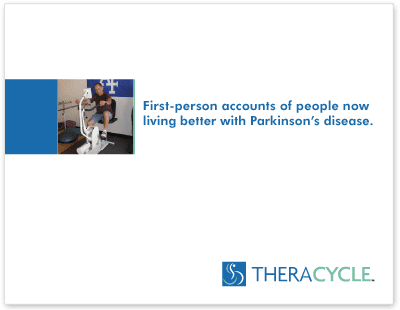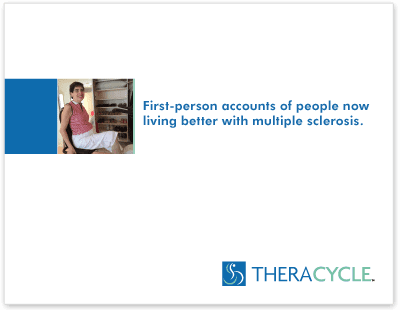- ›
- Stories
- ›
- Tips and Advice
- ›
- Navigating Speech Therapy Coverage Under Medicare
Stories
Navigating Speech Therapy Coverage Under Medicare


From: Healthline – www.healthline.com – Medically reviewed by Alana Biggers, M.D., MPH — Written by Rachel Nall, MSN, CRNA — December 2, 2020
- Medicare may cover speech therapy services under parts A, B, or C.
- The services must be medically necessary and may require choosing an in-network provider if you have a Medicare Advantage plan.
- Medicare no longer has a cap on how much it’ll cover for speech or other therapy services within a year.
Medicare covers speech therapy services if you’ve had a stroke, injury, or other illness that affects your speech or ability to swallow. How Medicare pays for these services depends on where you go for therapy and why you need it.
This article reviews the parts of Medicare that pay for speech therapy and explains how to know whether you’re eligible for coverage.
What parts of Medicare cover speech therapy?
Medicare Medicare divides its services into parts A, B, C, and D. Each part pays for different types of services.
Here are some examples of when different parts of Medicare would cover speech therapy.
Part A coverage
Part A coverspays for medical treatments received at a hospital or inpatient care center. Part A may cover the costs of speech therapy if it’s needed during a stay at a hospital or inpatient rehabilitation facility.
For example, if you have a stroke, you may require an inpatient hospital stay to treat the immediate effects of the stroke.
During this time, a speech language pathologist may evaluate your ability to communicate or if you have problems swallowing. A treatment plan can then be coordinated with your doctor.
Following your inpatient hospital stay, you may benefit from rehabilitation services. These could include therapies to regain strength and function on one side of your body and to continue improving communication and swallowing skills through speech therapy
Part B coverage
Medicare Part B pays for medical costs such as:
- doctor’s visits
- outpatient therapies
- durable medical equipment
Part B may help pay for speech therapy when you receive it in an outpatient setting, like:
- a speech therapist’s office
- an outpatient therapy facility
- a hospital on an outpatient basis
Part C coverage
Medicare Advantage (Part C) is an alternative to original Medicare (parts A and B), where a private insurance company provides your Medicare benefits.
Medicare requires Part C plans to cover at least the same costs and coverage as original Medicare. This means Medicare Advantage would cover both inpatient and outpatient speech therapy.
However, the insurance company providing your Part C plan may require you to get a referral from your primary care physician before you see a speech therapist or require you to use in-network providers.
How do I qualify for coverage?
To qualify for speech therapy coverage, you must first be enrolled in Medicare. You will typically do this when you turn 65 years old or if you have a qualifying disability or medical condition, such as end stage renal disease or amyotrophic lateral sclerosis.
You also must have the documentation from a physician stating that speech therapy is medically necessary for your situation. Your doctor may recommend an initial therapy course and then restate that ongoing therapy is medically necessary later.
In addition, the speech therapist and facility you visit must accept Medicare-approved costs. To find out if a potential provider accepts Medicare, check Medicare’s provider search tool.
What costs should I expect?
Medicare and Medicare Advantage plans negotiate with speech therapists to set costs. The amount you’re charged (and how much you pay) depends on:
- the type of speech therapy
- the facility where you receive therapy
- how long you receive these services
What you may pay will also depend on what part of Medicare is covering these services. We’ll take a look at some of the costs with each part next.
Part A costs
Under Part A, when you enter a hospital or skilled nursing facility, you begin a benefit period. You are responsible for a $1,484 deductible during each benefit period.
After you meet the deductible, you’ll pay the following coinsurance costs in 2021 based on how many days you’ve been in the facility:
- Days 1 through 60: $0 coinsurance
- Days 61 through 90: $371 daily coinsurance
- Day 91 and beyond (up to 60 lifetime reserve days): $742 daily coinsurance
After you’ve used all of your lifetime reserve days, you’ll be responsible for all medical costs. You begin a new benefit period when you haven’t been in the hospital or skilled nursing facility for 60 consecutive days.
Part B costs
Under Part B, you must first meet your deductible, which is $203 for 2021. Once you’ve met your deductible, you’ll be responsible for paying 20 percent of the Medicare-approved amount for your speech therapy services.
It’s important to note that Medicare used to limit how much it would pay for speech therapy services in a calendar year. However, it no longer limits your amount of speech or physical therapy services, as long as a qualified healthcare provides states that the services medically necessary.
Part c costs
Under Part C, or Medicare Advantage, you’ll usually pay a copayment or coinsurance cost when you see a speech therapist. You typically will pay less for a provider who’s in your insurance company’s network.
Many Medicare Part C plans have an out-of-pocket spending limit. If you reach this limit before the end of the calendar year, your costs should be covered by your plan.
Medigap costs
You can also purchase a Medicare supplement (Medigap) plan if you have original Medicare (parts A and B). These plans have a premium of their own, but can help cover your ongoing out-of-pocket costs from Medicare.
What is speech therapy?
Speech therapy or speech language pathology is a treatment process that can help you regain your ability to speak or swallow after an injury or illness.
These services are often used following a stroke or traumatic brain injury, which can affect the areas of the brain related to speech. Although the thoughts may be happening, it can be difficult to form the words and speak them clearly.
Other situations where speech therapy may be needed include after head or neck surgery or after a prolonged illness or hospital stay. Those who experience profound hearing loss and require a hearing implant may also benefit from speech therapy services.
The takeaway
- Medicare covers medically necessary speech therapy services.
- There’s no longer a limit on how long you can receive these services in a calendar year.
- Speech therapy can help improve necessary skills such as speech and language abilities, as well as swallowing.
The information on this website may assist you in making personal decisions about insurance, but it is not intended to provide advice regarding the purchase or use of any insurance or insurance products. Healthline Media does not transact the business of insurance in any manner and is not licensed as an insurance company or producer in any U.S. jurisdiction. Healthline Media does not recommend or endorse any third parties that may transact the business of insurance.
Last medically reviewed on December 2, 2020 | 4 sources
Healthline has strict sourcing guidelines and relies on peer-reviewed studies, academic research institutions, and medical associations. We avoid using tertiary references. You can learn more about how we ensure our content is accurate and current by reading our editorial policy.
- Medicare costs at a glance. (n.d.).
medicare.gov/your-medicare-costs/medicare-costs-at-a-glance - Medicare reimbursement of speech-language pathology services. (n.d.).
asha.org/practice/reimbursement/medicare/SLPMcareReimbursement - Speech-language pathology services. (n.d.).
medicare.gov/coverage/speech-language-pathology-services - Who are speech-language pathologists, and what do they do? (n.d.).
asha.org/public/Who-Are-Speech-Language-Pathologists








